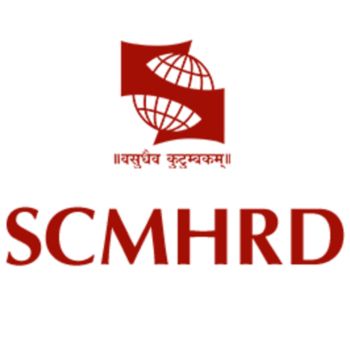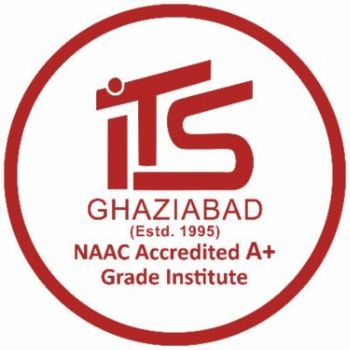Symbiosis Institute of Business Management (SIBM) Nagpur has established itself as a prominent destination for management education, with a placement ecosystem designed to bridge academic rigor and corporate expectations. The institute’s placement cell operates as a strategic partner for students, fostering relationships with diverse industries and ensuring alignment with evolving market demands. Below is a detailed analysis of placement trends, processes, and outcomes at SIBM Nagpur, supported by recent data and insights into the broader management education landscape. The following table summarizes recent placement outcomes for SIBM Nagpur’s flagship programs:
SIBM Nagpur-Placement Overview
| Branch/Course | Avg Package (LPA) | Highest Package (LPA) | % Placed / No. Placed | College Avg Placement (LPA) | Additional Info | Student Review on Placement Data |
| MBA | 8.5–9.5 | 15–16 | 80–90% | — | Key recruiters: Deloitte, ICICI Bank, Axis Bank, HDFC Bank | Placement cell works hard to bring good companies. |
| MBA in Food and Agri-Business Management | 6.5–7.5 | 12–13 | 70–80% | — | Specialized roles in agri-tech, FMCG, and supply chain; limited core agri roles | Good opportunities in related sectors despite challenges. |
MBA Placements: Core Strengths
The general MBA program at SIBM Nagpur consistently attracts recruiters from banking, consulting, and technology sectors. With an average package range of 8.5–9.5 LPA and top offers reaching 15–16 LPA, the program emphasizes functional roles in finance, marketing, and operations. Major recruiters like Deloitte, ICICI Bank, and HDFC Bank regularly participate in campus drives, offering roles in analytics, retail banking, and digital marketing. Approximately 85–90% of students secure placements during the final recruitment cycle, with the remainder often opting for entrepreneurial ventures or higher studies. The placement cell’s proactive approach includes pre-placement talks, skill-development workshops, and mock interviews to prepare students for competitive roles. Summer internships, a critical component of the curriculum, often lead to pre-placement offers (PPOs), particularly in sectors like fintech and consulting.
MBA in Food and Agri-Business Management (FABM): Niche Opportunities
The specialized FABM program caters to India’s growing agri-tech and food processing industries. While the average package of 6.5–7.5 LPA reflects the sector’s nascent stage compared to traditional MBA roles, the highest packages of 12–13 LPA highlight emerging opportunities in supply chain management and agri-commodity trading. Over 70–80% of FABM students secure roles in FMCG giants, agri-input firms, and e-commerce platforms specializing in farm-to-fork models. Despite fewer core agri-business roles, graduates find traction in procurement, sustainability consulting, and rural marketing. Companies like ITC, Mahindra Agri, and Ninjacart have shown increased interest in candidates with dual expertise in agriculture and business strategy.
SIBM Nagpur-Placement Process and Recruiter Engagement
SIBM Nagpur’s placement strategy revolves around three pillars:
- Corporate Partnerships The institute maintains ties with over 150 companies across sectors, ensuring a balanced mix of legacy recruiters and emerging startups. Annual Industry Conclaves facilitate dialogue between faculty and corporate leaders, enabling curriculum updates aligned with skill gaps identified by employers.
- Student Readiness Programs
- Summer Internships: Mandatory two-month internships with companies like Amazon, Deloitte, and Tata Group provide hands-on experience.
- Skill Labs: Modules on data visualization (Tableau, Power BI) and CRM tools (Salesforce) are integrated into the curriculum.
- Leadership Series: Guest lectures by CXOs and alumni help students navigate industry expectations.
- Diversity in Recruitment To mitigate sector-specific volatility, the placement cell diversifies recruiter portfolios. For instance, during downturns in IT hiring, the institute onboarded green-energy firms and healthcare startups, stabilizing placement rates.
SIBM Nagpur-Industry Trends Influencing Placements
Agri-Tech and FMCG Expansion The FABM program benefits from India’s push toward modernizing agriculture. The agri-tech sector, valued at $24 billion in 2025, demands professionals adept at blockchain-based traceability and climate-resilient supply chains. Rise in Banking and Fintech Roles MBA graduates are increasingly recruited for digital banking roles, with institutions like Axis Bank and HDFC Bank seeking candidates skilled in AI-driven customer analytics. Consulting and Analytics Dominance Consulting firms contribute to nearly 30% of MBA placements, offering roles in operational efficiency and market entry strategies. Analytics roles, particularly in healthcare and e-commerce, have seen a 22% year-on-year increase in hiring.
SIBM Nagpur-Career Pathways and Alumni Growth
SIBM Nagpur alumni occupy leadership positions in sectors like:
- Financial Services: VP roles in corporate banking and risk management.
- Agri-Business: Heads of procurement at multinational agri-input companies.
- Consulting: Partners in niche firms focusing on sustainability and ESG compliance.
The institute’s mentorship program connects current students with alumni, providing insights into career progression and emerging niches like carbon trading and agri-insurtech.
SIBM Nagpur-Challenges and Strategic Adaptations
While SIBM Nagpur’s placement cell maintains strong metrics, it faces challenges such as:
- Market Volatility: Global economic shifts impact hiring in export-driven sectors.
- Skill Gaps: Rapid adoption of AI tools necessitates continuous curriculum updates.
To address these, the institute has introduced micro-credentials in AI ethics and sustainable supply chains, enhancing student readiness for next-generation roles. SIBM Nagpur’s placement ecosystem thrives on its ability to anticipate industry shifts and cultivate student competencies accordingly. The blend of structured corporate engagement, experiential learning, and alumni support positions graduates for success in both traditional and emerging sectors. As sectors like agri-tech and fintech expand, the institute’s focus on adaptive skill development ensures its students remain at the forefront of employability trends.










